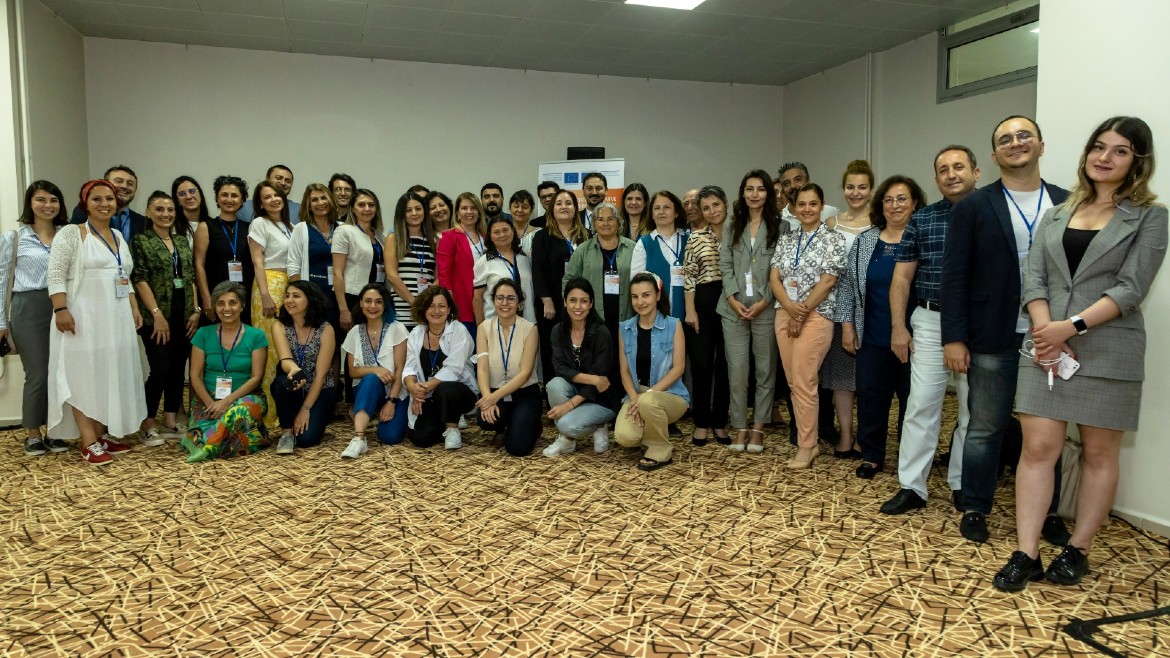The European Union and the Council of Europe’s joint action on “"Fostering Women's Access to Justice in Turkey"” held its second multi-stakeholder meeting in Muğla on 14 June.
The meeting aimed to identify the main challenges and solutions faced by women in accessing justice, but also to create local and sustainable support networks for the needs of vulnerable and disadvantaged women. Strengthening inter-institutional dialogue and raising awareness about practices sensitive to gender equality were also among the aims of the meeting.
In his speech, Atty. Cumhur Uzun, President of Muğla Bar Association, noted that “In this action, we are very pleased to have been selected as one of the four pilot bar associations in Turkey and to set a valuable example to the other provinces with our practices. For women's access to justice; non-governmental organisations, bar associations, local government officials, public institutions constitute the links of the chain and everyone should act with a sense of responsibility. As Muğla Bar Association, we will continue to support women's access to justice and be a model not only for women in Muğla, but also for women in other regions. We are glad to be part of this action and contribute together to the realisation of this ultimate and worthwhile goal."
Pınar Başpınar, Head of Operations at the Council of Europe Programme Office in Ankara, underlined that the joint EU/Council of Europe action “Fostering women’s access to justice in Türkiye” strives to increase the gender sensitivity of legal aid services and women's access to these services as well as to improve legal awareness and literacy among women so that they can exercise their rights as equal citizens in Türkiye.
“The grant agreement signed between the Council of Europe and the Union of Turkish Bar Associations to support women's access to legal aid is one of the important aspects of the action,” said Başpınar. “Within the scope of this grant, legal aid services will be provided to women by legal aid lawyers participating in the training program in at least 360 cases," she added.
The Union of Turkish Bar Associations, local bar associations and legal aid centres, legal aid lawyers, universities, law faculties, women's studies and gender research and application centres, non-governmental organisations working in the fields of combating gender-based violence and gender equality, public institutions and organisations, violence prevention centres, women's shelters and experts working in the field of women's rights have joined forces to ensure better protection of women’s rights and their improved access to justice.
In her presentation, Assistant Professor Asuman Aytekin İnceoğlu shared her observations on legal, institutional, socio-economic and cultural barriers to women's access to justice in Turkey and explained how the key principles of access to justice, namely justiciability, availability, accessibility, provision of remedies, quality of services and accountability, can be operationalised in practice. Related to the quality of judicial services, she stressed that “legal professionals should be aware of and avoid re-producing gender-based stereotypes and biases when interpreting and applying existing laws, which otherwise amount to discrimination and set barriers to women’s access to justice.”
The first multi-stakeholder meeting was held in Ordu in May 2022, the second was held in Muğla and two further meetings will be held in Nevşehir and Diyarbakır before the end of September. The meetings are taking place as a part of the action on “Fostering women's access to justice in Türkiye”, implemented within the framework of the European Union and Council of Europe’s joint programme entitled "Horizontal Facility for the Western Balkans and Turkey 2019-2022".




